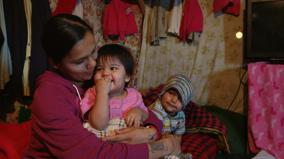New release
Coming
None
V.T.R. Rosedale
1974
31 min
Leaving soon
Using video recording technology, the citizens of Rosedale, once referred to as "the rear end of Alberta" by a frustrated citizen, pulled themselves together as a community. They formed a citizens' action committee, cleaned up the town, built a park, and negotiated with the government to install gas, water and sewage systems. And all this happened within five months.

Details
Using video recording technology, the citizens of Rosedale, once referred to as "the rear end of Alberta" by a frustrated citizen, pulled themselves together as a community. They formed a citizens' action committee, cleaned up the town, built a park, and negotiated with the government to install gas, water and sewage systems. And all this happened within five months.
-
producerLen Chatwin

















